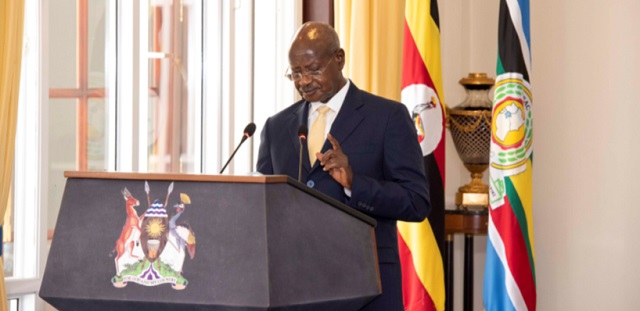
Was Museveni right to skip politics, COVID-19, to tout economy?
| MUBATSI ASINJA HABATI | When President Yoweri Museveni delivered the State of the Nation on June 4 he had a choice: to focus on politics as he has done in the past, dwell on the economy, or explain the next steps in the COVID-19 health scare which is the urgent issue in the country. He chose the economy.
It was a major diversion, even by the structure of his written speech which was built on the motif of the 10-point programme that Museveni and his then group of rebel fighters adopted in the early 1980s while fighting the jungles of Luweero, in central Uganda.
Building an independent, integrated and self-sustaining national economy, which the President dwelt on in his speech, is point NO.5 on the 10-Point Programme. Point N0. 1 is restoration of democracy, point N0. 2 restoration of security, point N0. 3 consolidation of national unity and elimination of all forms of sectarianism, and point N0.4 is defending and consolidating national independence.
Some of the points are superfluous and many are difficult for Museveni to lecture on convincingly. If he had chosen to dwell directly on the coronavirus disease COVID-19 pandemic ravaging the country, he would have been tackling point N0.6 on the 10-point programme; Restoration and improvement of social services and rehabilitation of war–ravaged areas. He would have had to explain why health facilities remain under-staffed and under-stocked, even missing basic but vital items such as Personal Protective Equipment (PPEs) for frontline medical workers.
As the President spoke, COVID-19 cases were rising rapidly towards the 1000 mark. It had started infecting medicals workers; seven in Gulu and one in Mulago. The Prime Minister, Ruhakana Rugunda who chairs the National COVID-19 Taskforce was in self-isolation over COVID-19 and there were reports that the main treatment centres at Mulago National Referral Hospital and Entebbe Grade B were getting overwhelmed with COVID-19 patient loads. They were turning away many of them.
Also, in her remarks just before the President delivered the address, Speaker of Parliament, Rebecca Kadaga, was more concerned with the political. She said the government needed to bring Bills related to the 2021 elections early for debate and not wait till just before election campaigns officially begin.
But President Museveni did not mention anything about the 2021 elections although there is growing concern.
Museveni is possibly contented at how his decrees to contain the Coronavirus pandemic have paralysed social gatherings, including political rallies, and given him the perfect pretext for postponing the 2021 election should he choose to. For now he has left everyone wondering if it will be possible to hold the general elections.
The public is also growing impatient about the national lockdown which was now in its third month. Some businesses, all schools, places of worship, and public transport remained paralysed. People needed answers. On March 18, Uganda launched a lockdown in response to the corona-virus pandemic.
Bullish economy
The President gave some hints in off the cuff remarks but his official speech was focused firmly on the economy. This is an area that is easy for Museveni to lecture on because he has a monopoly of the data; especially at the macro-economic level.
And he was bullish. He said Uganda has not only successfully battled the COVID-19 pandemic, it has contended with floods, landslides, rising water-levels in the lakes, locust swarms, floating islands, security, crime, feeding millions of our people, etc.
He said he is confident that sectors like agriculture, which he said was the bedrock of Uganda’s real economy, would cushion the economy from the shocks occasioned by COVID-19 pandemic.
That reflected the grandiose nature of his speech, where the more relevant aspects of the economy were speculative. Such as the banana flour project which this year consumed Shs9.5billion (bigger than the budgets of some ministries) and will next year swallow Shs12billion.
 The Independent Uganda: You get the Truth we Pay the Price
The Independent Uganda: You get the Truth we Pay the Price


